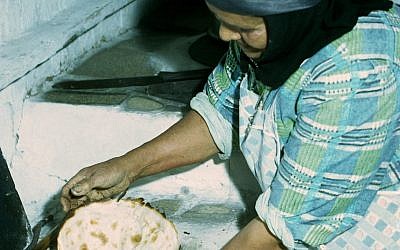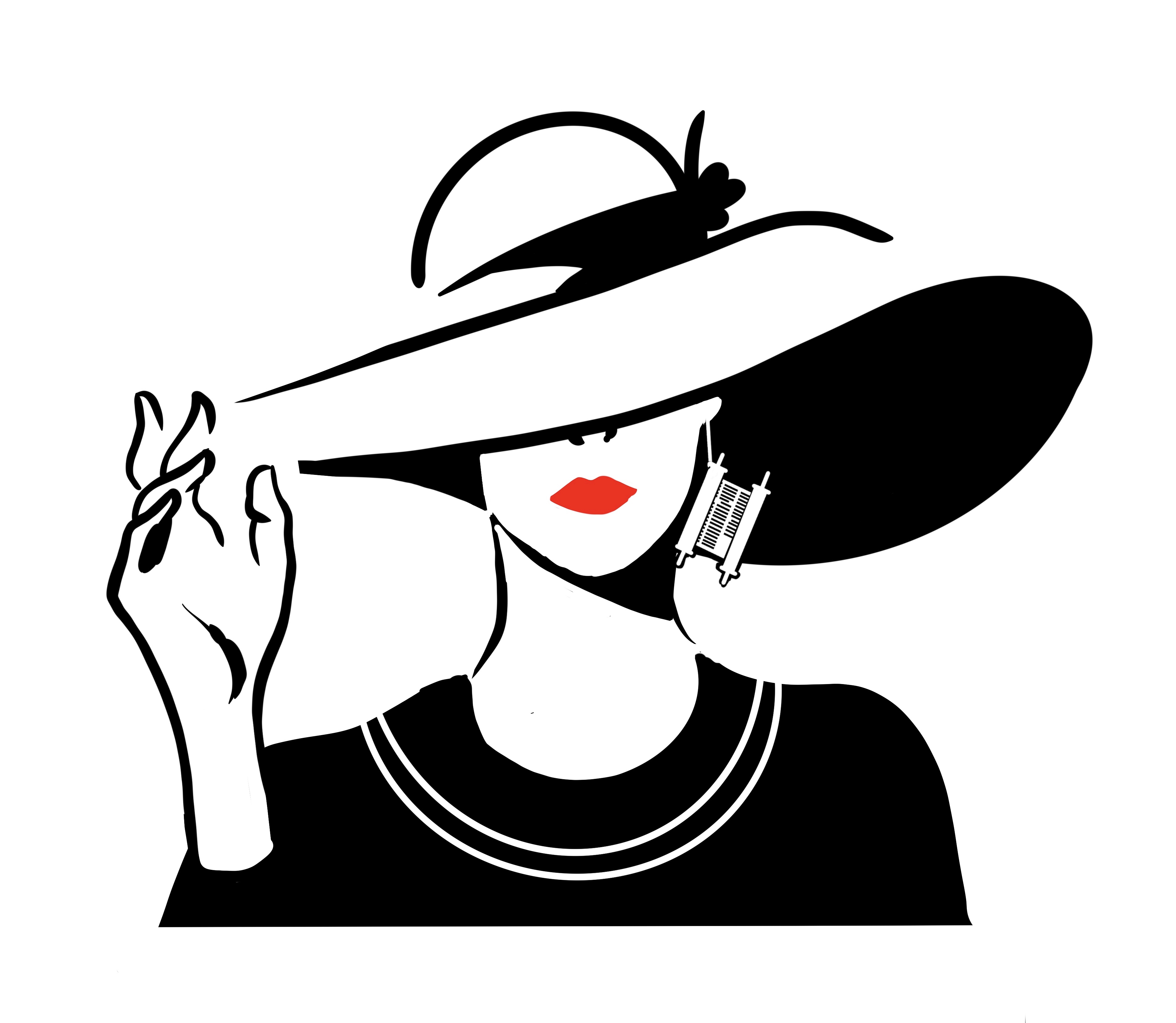There is a group of religious women I see at the gym at 6.30 am every day, except of course, on Shabbat. Derobed of sheitels [wigs] and heels, we are all slightly more vulnerable whether our bodies are taut and lithe, or flabby and shvitzing. A friendly nod is about as much conversation as I can muster.
Yet, every year as Pesach descends, the tone in the changing room changes. Suddenly, there’s animated chatter about HOW MUCH WORK THERE IS TO DO… Women are completely subsumed by the physicality of Pesach – if they are home-based, there are cupboards to clean, candelabras to polish, freezers to defrost, clothes to sort out, food to cook, family squabbles to navigate…the list is endless and the martyrdom impressive. Others must busy themselves with different physical chores – packing suitcases, boarding a flight. sitting by a pool in the Bahamas and snacking on gourmet Pesach delicacies.
Frum-Shaming as microaggressions of religious intolerance
Pesach is a time of frum-signalling – a term I coined to reflect the many ways that Orthodox Jews out-frum each other. Hence, tales of extra precautions and boasts of additional stringencies so that your piety is in plain view. But it’s also a time of frum-shaming, a concept Avital Chizhik-Goldschmidt highlighted in the sheital shenanigans. In the lead-up to Pesach, frum-shaming hovers unchecked and I think of it as microaggressions of religious intolerance. For example, it could be one person chiding another for buying whole fresh fish from the local supermarket [which the rabbi has permitted] rather than from the kosher fishmonger; a man telling his neighbour to clean their outdoor rubbish bins, even though their rabbi has said it’s not necessary after all the chametz has been emptied; or one woman unabashedly proclaiming that another woman’s standard of Pesach kashrut might be acceptable for a modern Orthodox crowd, but would not pass muster for a more ‘yeshivish’ crowd.
Frum-signalling and frum-shaming share the same psychological driver – a need to compensate for insecurity.
In many communities, Orthodox life unwittingly cultivates insecurities – particularly for women – and these can lead to signalling and/or shaming in order to adapt. In a recent, lengthy article, Maayan David posits that
Most graduates of Charedi educational systems are raised with the familiar myth of the “superwoman housewife.” … she cooks and cleans, washes and irons, organizes breakfast and puts her children to bed, sends them out in the morning and takes them to the park in the afternoon…And fathers? In children’s literature they appear as guests —to make Kiddush on Shabbos, to provide answers to halachic questions, to lead the Seder, and so on. These “literary mothers” have a virtual monopoly on all things related to the home and to bringing up children.
David then goes on to deconstruct this myth, highlighting the fact that women are working part-time, if not full time and citing research in the Charedi community where 40% of respondents [mainly younger couples] said that the household burden is equally shared by husband and wife. Despite this reality, David argues that the idealised image is still perpetuated, and therefore
…many live with a constant sense of failure and disappointment. Some will even go to great self-sacrifice to somehow live the idea they grew up on, sometimes suffering physical and emotional crises in their refusal to let go. Continually promoting an ideal that is manifestly detached from reality endangers these Charedi women. Instead of encouraging them to be wonderful housewives, the superwoman ideal exposes their failures and deeply hurts them. Charedi women believe that deep down, a real eishes chayil (woman of valor) manages on her own—even as she collapses under a physical and emotional burden that borders on the impossible.
But it would be a convenient stereotype to focus on the Charedi world. Frum-shaming women is also rampant in the modern Orthodox world, where women are also facing superwoman challenges, albeit of a different nature.

Yemenite Woman Prepares Matzah – The National Library of Israel, Dan Hadani’s Archive, photographer: Dan Hadani
Over the last 20-30 years, the opportunities for Orthodox women to study Talmud, engage in more ritual observance and actively participate in religious leadership has transformed Orthodox Jewish life, particularly for women in the modern Orthodox camp who have a broad secular education and generally, live in less insular communities. There are a small, but growing number of Orthodox women with rabbinic degrees who are serving in pastoral and educational roles, and there are increasing numbers of Orthodox women who are pursuing high level Talmud study, giving them the ability to decide questions of Jewish law. Yet, many modern Orthodox women choose to remain less educated, preferring to enjoy the benefits of what Jay Lefkowitz referred to as Social Orthodoxy. Do we risk shaming women who want feel-good Judaism and have little interest in learning or ritual participation?
In the UK, Orthodox Chief Rabbi Mirvis has actively encouraged women to say Kaddish in the synagogue and a helpful guide has been produced. Less than 20 years ago, groups of women started reading Megillat Esther on Purim for other women. Rabbis frowned upon it and certainly did not allow the groups to use the synagogue space. Now, the rabbis are clamouring for the women to participate and it’s not uncommon for an Orthodox synagogue to host and advertise a women’s Megillah reading event. But there’s a catch – not every modern Orthodox woman wants to participate and the danger of frum-shaming hovers. A woman who does not want to say Kaddish is regarded suspiciously. A woman who does not want to participate in a ‘partnership minyan’ – where there is a mechitzah separating men and women, and women are able to read from the Torah or lead certain parts of the service – is regarded as reactionary.
Frum-signalling by one woman is at the expense of frum-shaming another. As Brené Brown explained in her popular TED talk, ‘shame, for women, is this web of unobtainable, conflicting, competing expectations about who we’re supposed to be. And it’s a straight-jacket.’
So much for the sisterhood.
Seder night is approaching, and it has become customary to recline while eating matza as a sign of being released from slavery. The Talmud [Pesachim 108a] explains that A woman who is with her husband is not required to recline, but if she is an important woman, she is required to recline. About a 1,000 years later, Rabbi Isserles [the Rema] in Krakow wrote that all women could be considered important and are thus obligated to recline.
Over time, it became the custom for women not to recline, and it seems that the notion of the ‘important woman’ has fallen by the wayside. But it’s worth asking the question – who are the important women of our time? The teacher supporting her husband in kollel raising seven children, the aspiring student dedicating herself to Talmud study in order to teach others, the frum businesswoman who rushes home on a Friday afternoon to make Shabbat, the kind-hearted homemaker who helps at her child’s school, the mourner who goes to shul every day to say Kaddish for her father or the woman who drives sick people to their hospital appointments? Clearly, they are not mutually exclusive, and surely, the words of the Rema are as relevant now as they were then: all women could be considered important.
No shaming allowed.
